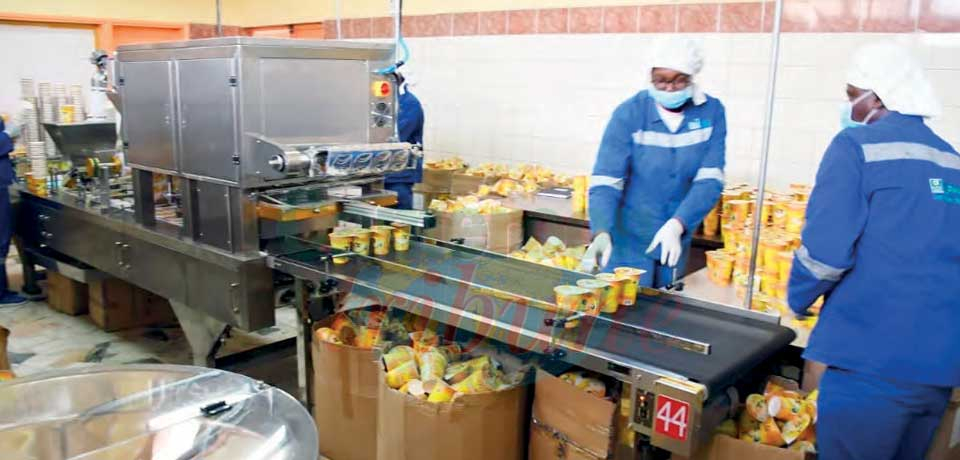Plastic Wastes: Unearthing Hidden Wealth
- Par Godlove BAINKONG
- 20 Jun 2024 15:33
- Likes
The announcement a few days ago that a German firm is showing interest in setting up a base in Cameroon to locally process the country’s plastic wastes certainly raised anxiety in the population, most especially city dwellers.
Understandably so as waste disposal in general constitutes a serious problem in almost all urban areas across the country. Garbage disposal has over the years proven to be a challenging task for city managers owing to the sprouting nature of the towns from the nearly-uncontrollably urban exodus. When such urban growth is met with few waste disposal companies that at the same time face mounting financial and logistic difficulties to clear the garbage, the town is bound to be reduced to a vast dustbin. This results in stockpiles of stinking refuse on the streets and even in neigbourhoods. Difficult to talk about hygiene and sanitation when cities are reduced to filth!
The environmental and health hazards caused by the abandoned wastes are huge. It is commonplace to see garbage disposed anywhere, everywhere. In markets, road junctions and on the streets as a whole. The disgusting smell that emanates from the uncollected garbage and what flies that breed and feed from such dirt leave on food items, are dangerous to health.
It even becomes worse with plastic wastes that end up in gutters and streams obstructing the flow of rain and running water, causing untold floods that make life nearly unbearable for most, if not all, inhabitants. Looking at the huge quantity of plastic wastes produced in the country and what is said to be processed locally, the only solution is in effective and may be decentralised recycling. Available statistics show that over 600,000 metric tons of plastic wastes are produced in Cameroon annually with barely 10 per cent of that quantity, which can reportedly take over 400 years to degrade, effectively processed. Of course, what this means is that the remaining 90 per cent ends up in the wild, choking the soil, polluting waterways and causing the drainage headache in urban areas. This is disturbing, to say the least!
The intention of Alba Group, Germany’s second-largest household waste treatment group with a particular focus on plastic waste, to invest in the sector therefore offers varied opportunities to the country and its citizens. Clearing the wastes will no doubt embellish the cities and setting up plastic waste processing plants will certainly create skilled and unskilled jobs for the population and the earnings of the workers will generate wealth for the economy.
It is common knowledge that when waste is recycled, it lessens disruption to the natural world which, in other words, preserves ecosystems and wildlife. Recycling the country’s wastes will undeniably create jobs notably for many in the chain: Sorters, drivers, mechanics, technicians, and more. There is more to gain in recycling the huge wastes that the country generates.
The Asia Director of the Alba Group speaking after a meeting with the Prime Minister Head of Government, said Cameroon is a favourable location for investment in the field of recycling wastes. His pronouncements that; “We are here to see what we can contribute to solving the problem of plastic pollution. We also want to come up with innovative solutions that will benefit both people and the environment. We also want to create a real market for garbage recycling in general, and plastic waste in particular,” is reassuring, looking at the magnitude of the problem. All must be done therefore to materialise the expressed zeal.
However, the complex nature of the waste disposal problem demands more than just the will of one potential investor. More so as recycling waste comprises a two-stage process: Sorting out the waste which is mainly done automatically with a manual sort to ensure all impurities have been removed. Once sorted and cleaned, the plastic waste can either be shredded into flakes or melt processed to form pellets before finally being moulded into new products. This is so demanding especially where the raw materials are in huge quantities like in Cameroon now. This explains why the Group’s officials after meeting with the Prime Minister equally held talks with other government officials and clearly expressed the need to get on board other private partners who already have a fairly goo...
Cet article complet est réservé aux abonnés
Déjà abonné ? Identifiez-vous >
Accédez en illimité à Cameroon Tribune Digital à partir de 26250 FCFA
Je M'abonne1 minute suffit pour vous abonner à Cameroon Tribune Digital !
- Votre numéro spécial cameroon-tribune en version numérique
- Des encarts
- Des appels d'offres exclusives
- D'avant-première (accès 24h avant la publication)
- Des éditions consultables sur tous supports (smartphone, tablettes, PC)














Commentaires